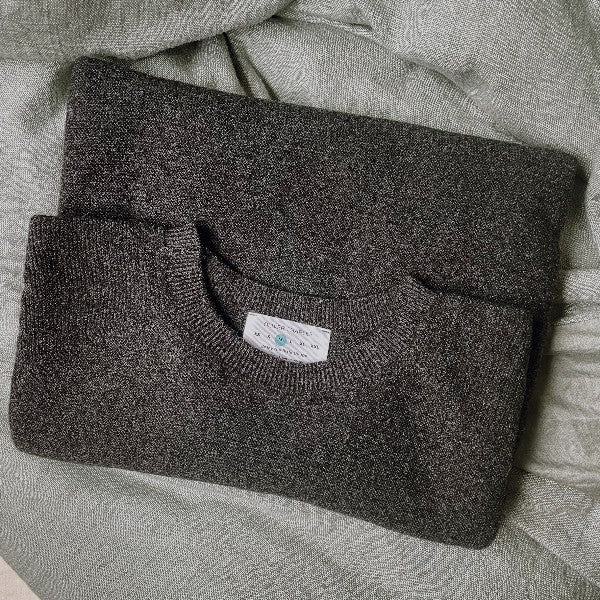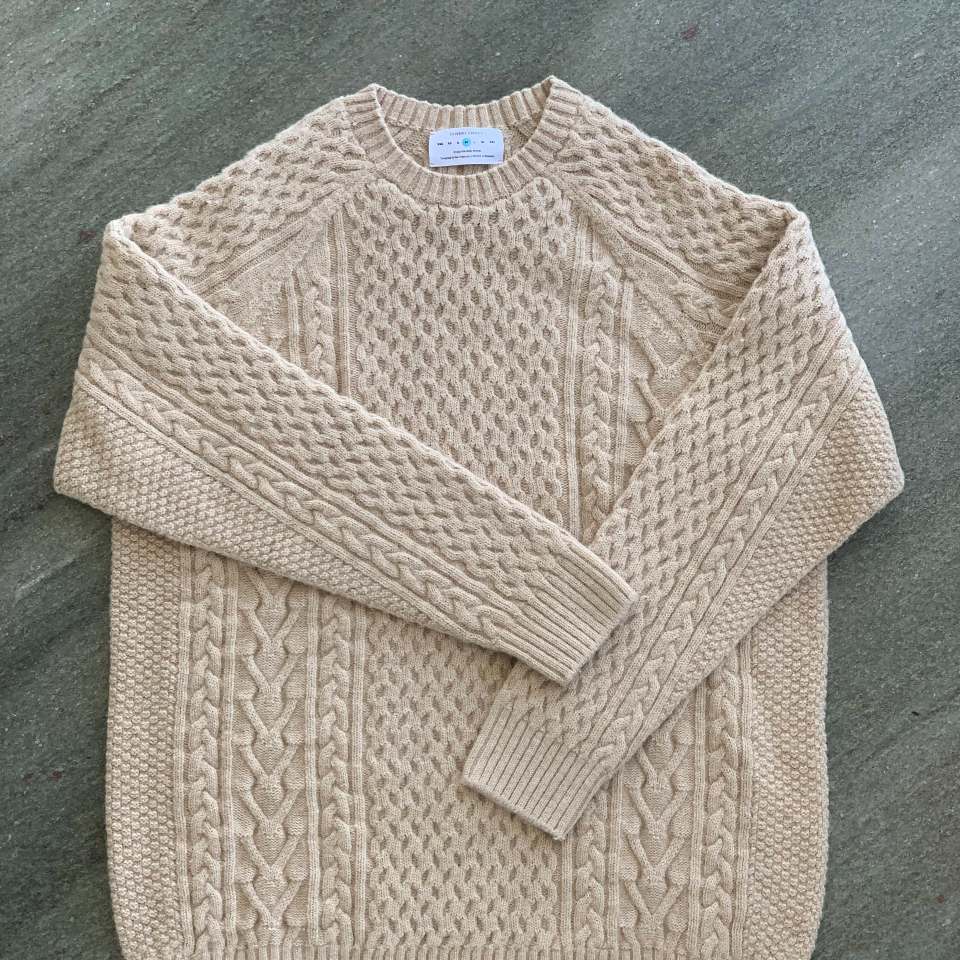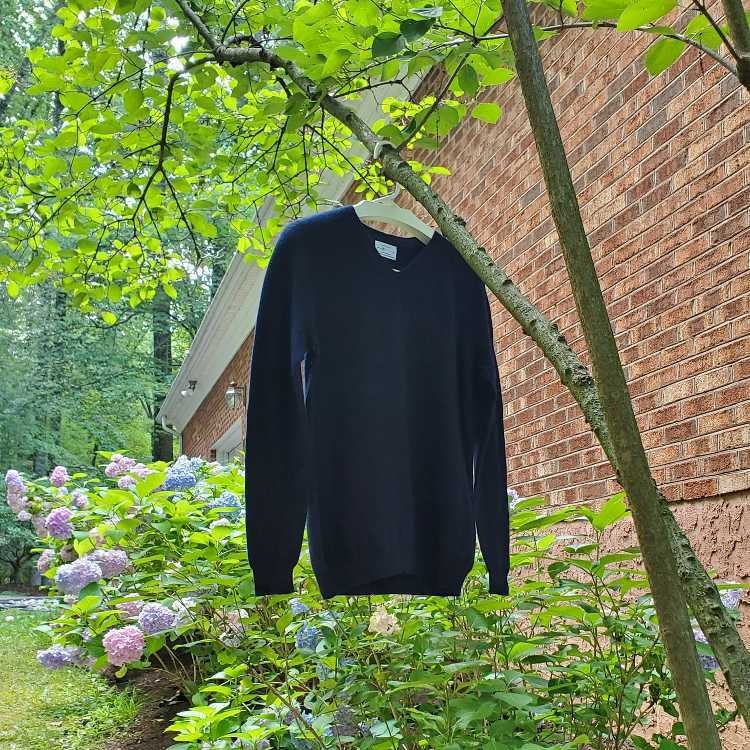How A Capsule Wardrobe Benefits You And The Planet
Adopting a #repeat lifestyle for a sustainable future.
January 4, 2024
By Lia Klinchik
On The Path Of Eco-Conscious Adventure
Introducing a five-part blog series about how you can get the most out of life on the road, traveling lightly, while also benefitting the environment and people around you.
- OC Official Road Tripping Guide
- My 1-Week Challenge Experience
- Relationship On The Road
- My OC Sweater in Idyllwild, CA
- Living Simply to Benefit The Planet
----------
I cringe a little bit when I think back to when my friends and I would spend all day casually clothes shopping at the mall.
There’s so much more to life than spending a weekend in a shopping center.
Nowadays, I find joy in searching for long-lasting items, everyday sweaters I can cozy up in, and little things that have character/bring me happiness.
I’ve noticed that once I stepped out of the whirlpool of “I need this” and “I need that,” I began to see how everything around me is run by this constant want for more and better.
I started to redefine what "I need" means to me. How much does it really take to be comfortable?
Every day, I’m bombarded with ads for things I supposedly need, yet I come home to a room full of things I could probably do without.
It took me a long time to figure out the things I constantly gravitate to vs. the things I needed to part with.
Eventually, I created a clothing capsule that has helped improve my happiness and simplify my life.
There’s a freedom that comes from living out of a capsule wardrobe. With it, I don’t even think about what I have in my closet. Existing like this gives me peace of mind. Physical clutter can translate to mental clutter.
Through a capsule, I can keep track of everything I own, and the physical weight and emotional attachment of material items lessen on my back. If it doesn’t fit in my capsule - it’s not staying!
When it comes to my go-to clothes, I've narrowed down to keeping mainly staples such as, unsurprisingly, my versatile yak wool sweater.
The craving for more material objects is detrimental to our pockets, mental health, and the planet.
But could there possibly be a way out of this?
Incorporating the 5 principles of minimalism below can help us navigate out of this mess.
We can start small, or perhaps big, by shifting our mindsets.
- Eliminate what's unnecessary: it's all about simplifying your life and removing anything that doesn't add value. Start by decluttering your physical space, getting rid of anything that you no longer use, need, or enjoy.
- Prioritize happiness and quality: Instead of chasing unnecessary material possessions, focus on what truly brings you joy and utility.
- Practice intentional consumption: When you do make purchases, do so intentionally and mindfully. Consider the impact of your buying choices on the environment and your overall well-being. Only buy what will bring you long-term value.
- Embrace simplicity: This could mean simplifying your daily routines and outfit repeating!
- Cultivate gratitude: By focusing on what truly matters and eliminating the excess, we can better appreciate and enjoy the simple pleasures in life.

Build A Minimalist Capsule Wardrobe
One of the core principles of minimalism is removing either what doesn’t matter or what isn’t bringing you happiness in order to make more room for the things that do.
Ask yourself how the things in your life affect you and your happiness.
The clothes in your closet should invite joy. When you get dressed in the morning, how do you feel? Happy or stressed and anxious?
We regularly underestimate the way our personal style makes us feel.
It’s important to feel strong, confident, and comfortable in our bodies. Clothing can be a way we redefine who we are and also set the tone for the day.
A simple formula for doing so is to find the outfits you love, upgrade them with high-quality clothing in terms of production and material, and wear those outfits all the time!
For me, the Oliver Charles sweater follows this formula and is a wonderful go-to in my already minimalist capsule wardrobe.
I can wear a sweater every day to work, on outdoor adventures, or for nights out.
Since I added the Oliver Charles crew neck sweater to my closet, I’ve made a lot of space that would have otherwise been taken over by a mountain of clothes.
Plus, it pairs with everything in my closet and is easy to repeat wear.

What Is Minimalism?
Growing up, my mother rarely bought anything new and owned a minimalist wardrobe. Anytime we’d go on a drive, and she saw some furniture lying on the side of the road, we’d make a pit stop and shove it in the back of her jeep.
We found toaster ovens, tables, chairs, couches - you name it. She used to turn old headboards into benches and had a good eye for well-made clothes when we went to the thrift store.
There was no such thing as something that couldn’t be fixed or reused. If it was old, you could turn it into something new. Everything was given a purpose and continuously repurposed.
She spent a lot of time getting rid of things and reorganizing too. She’d shift the furniture around often, something I picked up and do all the time now.
There was less of an attachment to what we had and more of an idea that we could just donate it if it was no longer needed.
Minimalism is the idea that one can find purpose through life and experience rather than material objects.
It’s about making space for the things in life that really matter to you, freeing you from stifling beliefs and belongings. Less can create and amplify more.
Adopting a minimalist wardrobe and lifestyle means adopting a minimalist mentality. You learn to be content with what you have. And it’s not about getting rid of everything you own but rather about reducing quantity while increasing quality.

Overconsumption And Our Planet
I often wonder to myself if this strong desire to possess things other than what we already have is part of human nature.
Was it taught to me, ingrained in my mind from watching TV in the morning before school as a kid? Or did I arrive with these feelings?
It started at an elementary age. I remember seeing one of my peers had cooler shoes than me, or so I thought, so I’d go home and ask my parents for it.
I’d dress myself in them, then see something better and ask for that too. And on and on.
As fashion trends change, we’re quick to hop on and ditch our already new clothes for even newer ones.
There used to be this stigma around thrift shopping growing up because it seemed to mean that you didn’t have money, but now you can find what you would in a thrift store on the shelves of a big-name retailer.
Anxiety starts to grow around constantly needing something and believing that we never have enough. It makes everyday activities like picking out something to wear stressful. And on top of this, we spend money on things we don’t even need without thinking twice about it.
Overconsumption has devastating effects on our home - Earth. We are often underinformed about the footprints of what we purchase.
More waste in landfills leads to environmental overwhelm. The more energy used to produce these products leads to more carbon in the atmosphere.
In terms of fast fashion, companies have created a culture of impulse buying. These companies do not care about your health or the planet. Their decisions are based on how much money they’ll make regardless of the consequences.

Minimalist's Mindset
When you know your values, you can prioritize and be intentional about what you consume. Minimalism is about aligning your life with what you want.
Let go of those belongings that are impacting your happiness.
Guidelines for letting go of extras:
- If you don’t use it and you don’t love it, then you probably don’t need it!
- Say no to what you don’t want. Your time and presence are precious.
- Understand that you don’t need physical souvenirs from every period of time in your life.
You can avoid buying things you don’t need by stopping yourself to think before making a purchase. Get crafty and consider other ways to get what you want.
Ask yourself these questions:
- Can I make it at home?
- Can I repurpose an item I have?
- Can I borrow this from a friend?
- Will this last more than one use?
Once you let go of the belief that when you finally have "xyz," you’ll be happy, then you can open yourself up to new opportunities.
Instead of spending hundreds of dollars on a bunch of different disposable items, invest in one really good one and save the rest of your money.
Stepping out of the cycle of fast fashion is not easy. It takes the consistent choice to be mindful and part of the shift towards a more sustainable future.
Lia Klinchik is a freelance blogger, content creator, and editor, who studies wellness and nutrition. She's passionate about sustainability, travel, and making the world a better place. Through her writing, she hopes to convey meaningful messages that change people's minds.
If you believe that every good wardrobe starts with owning less and owning better, consider buying yourself an OLIVER CHARLES sweater.
Shop NowHow To Stop Moths From Eating Your Wool Sweaters
Best practices for storing wool clothes and preventing moth infestations.
Read moreWhat Deodorant Do You Use With Wool Sweaters?
Keeping you and your wool clothes fresh without causing damage.
Read moreEnclothed Cognition Meets The Capsule Wardrobe
The impact of our clothing choices in cultivating a conscious and compact wardrobe.
Read more



